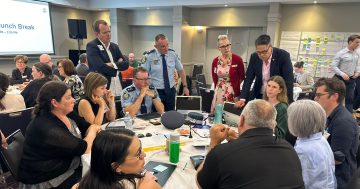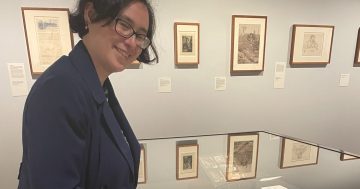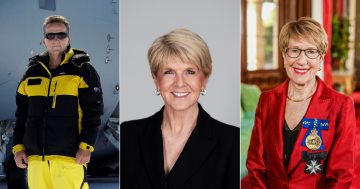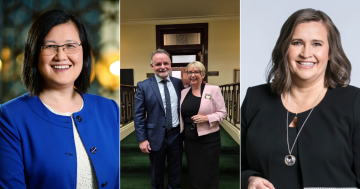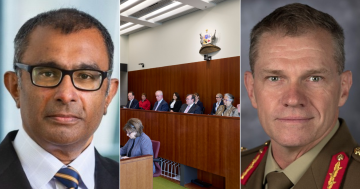 1. This week 10 years ago, the Organisation for Economic Co-operation and Development (OECD) released a report endorsing Australia’s new national framework for evaluating and assessing teachers, students and schools. Minister for School Education, Peter Garrett said the report found the education reforms had established transparency and accountability as the foundation for a high-quality and fair school system.
1. This week 10 years ago, the Organisation for Economic Co-operation and Development (OECD) released a report endorsing Australia’s new national framework for evaluating and assessing teachers, students and schools. Minister for School Education, Peter Garrett said the report found the education reforms had established transparency and accountability as the foundation for a high-quality and fair school system.
“The report is a big tick of approval from an independent, internationally recognised organisation,” Mr Garrett said. “The OECD believes our decision to introduce teacher standards is a ‘major development’ and that teachers in Australia are treated as ‘trusted professionals’ with a high degree of autonomy.”
2. The same week NSW Attorney-General, Greg Smith announced the compulsory age of retirement for Crown Prosecutors and Public Defenders in the NSW court system would be increased to 72, which would see some of the State’s most experienced public lawyers extend their careers by up to seven years.
“The NSW Government does not want to see talented Crown Prosecutors and Public Defenders forced into retirement prematurely when they are mentally sharp and still have a great deal to offer the NSW justice system,” Mr Smith said.
He said the change would make senior positions within the Office of the Director of Public Prosecutions and the Public Defenders Office more desirable, which would help to attract the highest calibre of candidate.
3. Also this week a decade ago, the Australian Institute of Criminology (AIC) released a report on the incidence of assault and robbery against overseas students in Australia between 2005 and 2009. Director of the AIC, Adam Tomison said the groundbreaking analysis data-matched 418,294 students from five source countries with police victim records over the five years.
“The nature of the data did not allow the AIC to engage in specific analysis of racial motivation,” Mr Tomison said.
“That said, there was nothing in the overall findings that lends support to the view that Indian students have been singled out primarily for racial reasons.”
4. Back in NSW, a review of the proposal for the Barangaroo development project found it to be worthwhile and valid.
Premier, Barry O’Farrell said the review found concerns about the level of consultation, communication and transparency and, while there were no breaches of the planning processes, there were areas for improvement. He said the Government would now proceed with the redevelopment, but with changes to the original plans.
“Barangaroo would reinvigorate Sydney’s position as a financial hub of the Asia-Pacific,” Mr O’Farrell said. “It would generate jobs, boost the economy and create a vibrant new place for people to live, work and visit — as well as attracting new investment.”
5. Victorian Premier and Minister for the Arts, Ted Baillieu released a consultants’ report for Arts Victoria that revealed that live music performers and venues contributed more than half a billion dollars to the State’s economy each year.
“Melbourne has more live music venues than any other Australian city and Victorians are passionate about live music, with around 5.4 million attendees at Victorian venues in 2009/10 — outstripping even the AFL,” Mr Baillieu said.
The report found the venue-based live music sector created the equivalent of 17,200 full-time jobs; provided almost 70 per cent of live performance income for Victorian musicians; and played a crucial role in incubating talent and developing and establishing musicians’ careers.
6. And in Queensland 10 years ago, a survey by the Crime and Misconduct Commission (CMC) measured the community’s perceptions of the Queensland Police Service (QPS), finding that Queenslanders believed police officers were honest and generally behaved well but confidence in the QPS complaints handling process had declined.
The report found that 90 per cent of respondents agreed that police generally or mostly behaved well; however, since 2008 there had been a drop (from 65 to 55 per cent) in the proportion of respondents who believed police treated Aboriginal and Torres Strait Islander peoples differently from white Australians.


